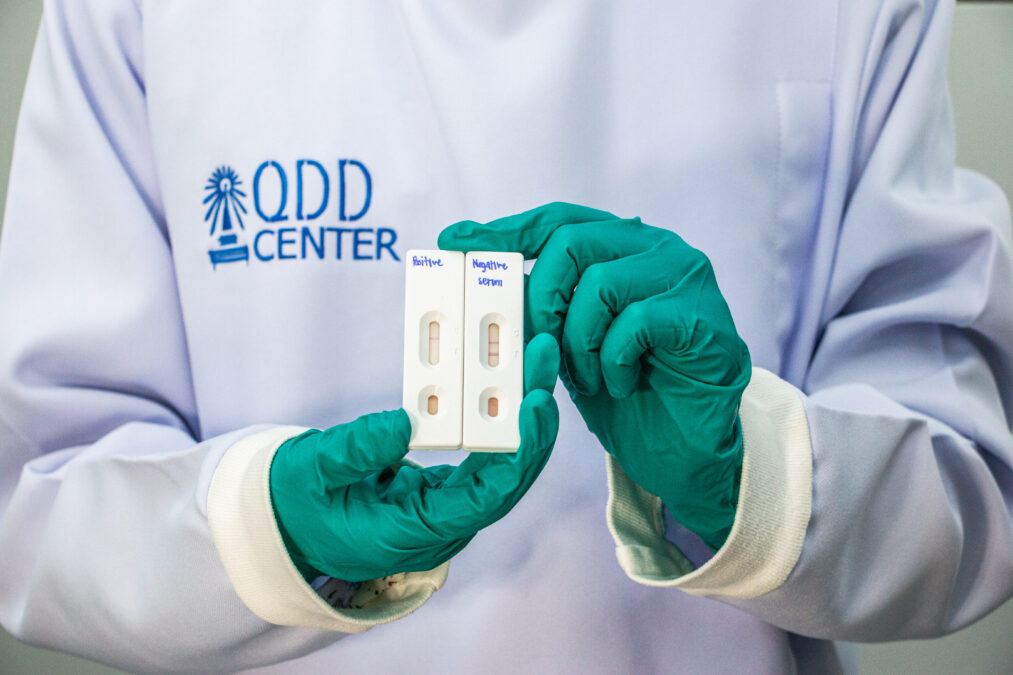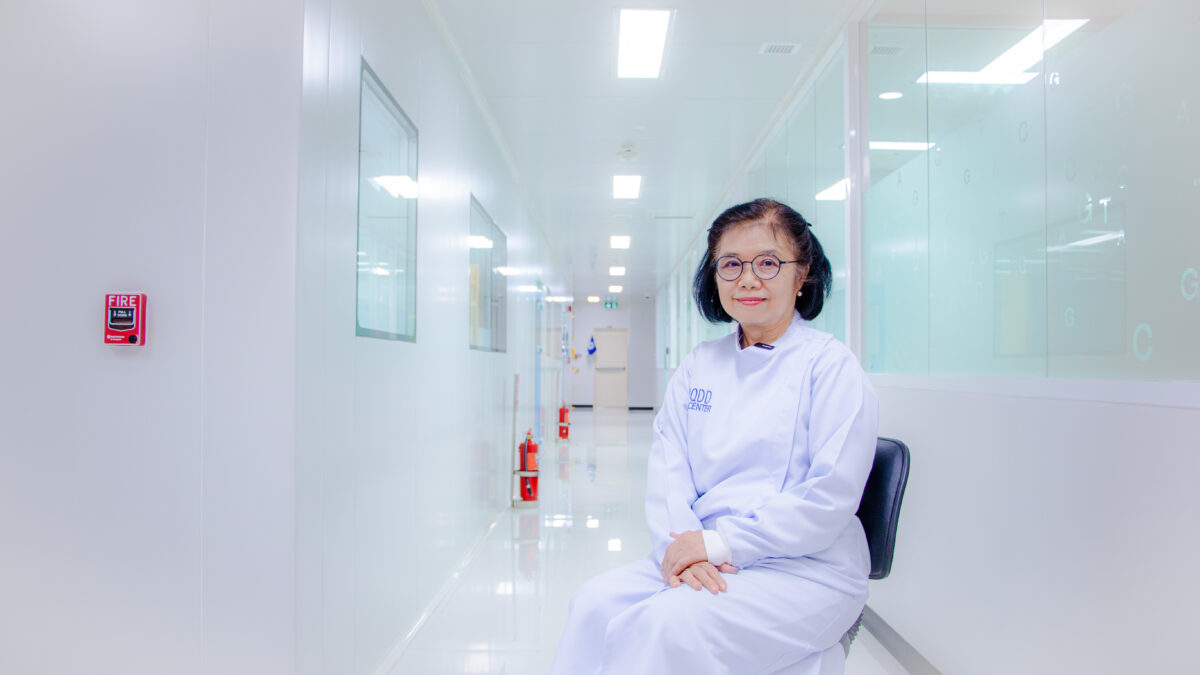The number one advantage of using Strip Test for screening for various substances is that it is suitable for use in the field because of its “portability”, “ease of use”, “fast results” and “no need for sophisticated analytical tools”. However, one bottle neck in research and development of test strips in Thailand is that most of the test strips are also laboratory-scale prototypes, which have not been certified by production standards, leaving uncertainty in the test results. It is a major obstacle to the drive towards commercial production.

That was the main inspiration for the establishment of the Qualified Development Diagnostic Center (QDD center) at Chulalongkorn University, which is one of the seven centers formed under the GMP (Good Manufacturing Practices) certified laboratories program, which receives funding support from the Innovation Hubs-Aging Society project, Mahidol University in 2019. The center’s main function is to develop rapid diagnostic test kits, including Strip Test.
Therefore, in order for the QDD center to be ready to support research and development work or other activities related to diagnostic kits, the Program Management Unit for Competitiveness, or PMUC, therefore offered research funding to the center in 2020 under the “Innovative Diagnostics Cooperative Network Project” in order to apply the results from the prototype test strip project to the production of test kits on an extended scale in the laboratory under controlled conditions in adherence to the center’s international standards. Furthermore, assessing the efficacy, sensitivity, specificity, accuracy and reliability of the screening method to test and analyze real samples in order to build confidence for those who are interested in using it in real practice.

“The research on the development of test strips for detecting progesterone in the blood of young swines (Progesterone test kit) by the research team from the Institute of Biotechnology and Genetic Engineering Research, Chulalongkorn University (IBGE-CU) is a model in project implementation. In the current process for monitoring for gestation in swines, farmers typically rely on visual observation of changes in the swines, presenting a chance for misevaluation, such as false determination of gestation. On the other hand, the current method of laboratory testing for progesterone in swines (Elisa Test) is complex, and the cost is quite high (approximately 400 baht per sample), so it is not commonly used in swine farms in Thailand.” Prof.Dr. Sirirat Rengpipat, head of the Qualified Development Diagnostic Center, provided information about working under a research grant from PMUC.
The progesterone test produced by the center for screening swine blood samples, which have been used for real testing on swines that have been fertilized both on swine farms in Thailand and a test group of farmers in Italy. The findings showed that the test kit provided correct and accurate test results for determination of gestation, which is comparable to the traditional test method.
“Our test method will help swine farms to have accurate determination of gestation in swines conveniently and quickly, which can help lead to quick and appropriate decision making, translating to cost savings for farmers, especially the cost of feed. This may indirectly lead to lower pork prices for consumers as well. Currently our Progesterone test kit has attracted the attention of major Thai swine producers such as CP, Betagro, which, per our expectation, aside from enabling the center to produce the Strip Test for checking for gestation in swines, benefiting the pork industry as a whole, working under this Innovative Diagnostics Cooperative Network Project will be an important stepping stone that makes QDD center a primary manufacturer of test strips that meets both national and international standards,” concluded the head of the center.
As for the next step for the QDD center, Prof. Dr. Sirirat said that, in addition to the production of lateral flow test strips for agricultural and food industries, it also includes a rapid test kit to support Point of Care testing, which will be used to screen patients and reduce the burden on patients and healthcare professionals. But to get to that point the QDD center must first obtain a medical standard certification known as ISO 13485, which is currently developing a rapid urine albumin test kit (Albumin is one of the proteins found in the urine of people with impaired kidney function). In addition to being useful for initial screening for people at risk of developing kidney disease, it is also a stepping stone to becoming the first government agency in Thailand to achieve ISO 13485 certification, which will help to build credibility for the QDD center, including for the development of test strip production, and the commercial production process to follow.







